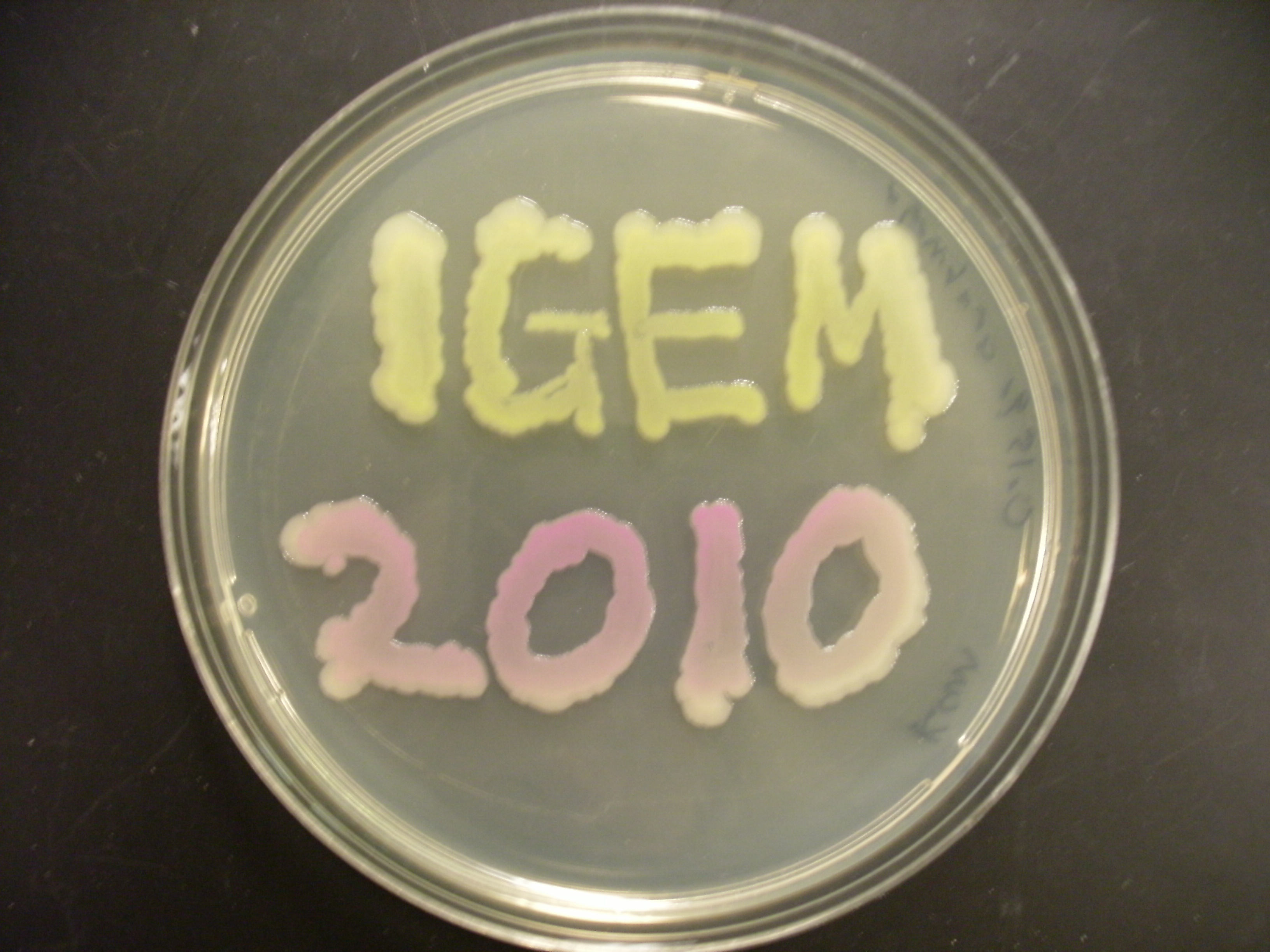Team:Michigan
From 2010.igem.org
Chillywings (Talk | contribs) (→Project Background) |
|||
| (4 intermediate revisions not shown) | |||
| Line 1: | Line 1: | ||
{{Michigan Header}} | {{Michigan Header}} | ||
| - | + | Welcome to the homepage of the University of Michigan Synthetic Biology Team! | |
| - | {| cellspacing=0 style="background:transparent" | + | ==Project Abstract== |
| + | {| cellspacing=0 style="background:transparent" | ||
| + | |-valign = "top" | ||
| | | | ||
| - | |||
'''Algae Bioflocculation for Biofuel Production and Bioremediation of Oil Sands Tailings Water''' | '''Algae Bioflocculation for Biofuel Production and Bioremediation of Oil Sands Tailings Water''' | ||
| - | + | Our team worked on two projects this year. Our first project aims to improve the economics of algal biofuel production by creating a cost efficient microalgae bioflocculant out of E. coli. To achieve this, we over-express Type I pili to increase the cell’s adhesiveness, and also express a chlorovirus protein on the cell surface which specifically binds Chlorella species, a promising algal feedstock for the biofuel industry. | |
| - | + | ||
| - | + | ||
| - | + | ||
| + | We are also participating in the Oil Sands Initiative and seeking to improve the biodegradation rate of naphthenic acids (NAs), a toxic by-product of the oil extraction process which can linger in the environment for decades. Two Pseudomonas strains have been found to synergistically degrade 95% of NAs. Our project focuses on engineering these Pseudomonas strains to form biofilms in the harsh tailings water environment, which can potentially increase degradation rates by two orders of magnitude, by expressing a self-associating E. coli protein. | ||
| | | | ||
Latest revision as of 17:50, 27 October 2010
Welcome to the homepage of the University of Michigan Synthetic Biology Team!
Project Abstract
|
Algae Bioflocculation for Biofuel Production and Bioremediation of Oil Sands Tailings Water Our team worked on two projects this year. Our first project aims to improve the economics of algal biofuel production by creating a cost efficient microalgae bioflocculant out of E. coli. To achieve this, we over-express Type I pili to increase the cell’s adhesiveness, and also express a chlorovirus protein on the cell surface which specifically binds Chlorella species, a promising algal feedstock for the biofuel industry. We are also participating in the Oil Sands Initiative and seeking to improve the biodegradation rate of naphthenic acids (NAs), a toxic by-product of the oil extraction process which can linger in the environment for decades. Two Pseudomonas strains have been found to synergistically degrade 95% of NAs. Our project focuses on engineering these Pseudomonas strains to form biofilms in the harsh tailings water environment, which can potentially increase degradation rates by two orders of magnitude, by expressing a self-associating E. coli protein. |
|
 "
"

